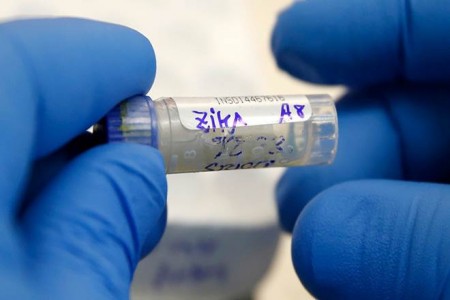July 4, 2016 – To my American readers I wish you a happy 4th of July. A month from now I’m hoping that we can all continue to be happy as the Olympic Games opens in Rio de Janeiro, the current epicentre of the Zika virus outbreak. The host country, Brazil, is not only a political basket case, the city and its surrounding state have run out of money and have had to be bailed out by the national government. The water sports sites remain polluted with no hope for adequate cleanup before the opening of the Games. Athletes already on site have been getting sick from being exposed to waterborne pollution. And to top it off, Rio’s continuing spate of violent crimes has produced an environment where athletes are being advised to stay inside the Olympic Village and not venture into the city itself. All in all this is an Olympics to remember without Zika. But with it the entire world may feel the reach of this international sporting event as Zika spreads to many other locales borne by athletes and visitors to the Games.
One hopeful sign is the first clinical trial of a Zika virus vaccine from Inovio Pharmaceutical and GeneOne Life Science. The vaccine, GLS-5700, it was announced on June 21st will undergo a phase 1 clinical trial on 40 healthy volunteers beginning probably about now. Joining these two companies are other likely Zika vaccines from Sanofi, the French pharmaceutical company, and Bharat Biotech, in India. The vaccines won’t be available for athletes and the scientists won’t know if any of them work until probably 2018.
The Inovio vaccine is using a synthetic Zika gene inserted into a DNA-carrying vessel called a plasmid. When injected the theory is that the body will recognize the bits of Zika proteins and will develop an immune response to attack it. DNA vaccines are a new technology and because of the use of a synthetic Zika are not actually exposing human recipients to the virus while creating the same impact as if live or attenuated viral material were being used. DNA vaccines are also easy to store and don’t require refrigeration. So they can be distributed to places like tropical Brazil without potential loss. The downside, however, is that DNA vaccines to-date have had spotty results with some not providing enough of a immune system boost to make a difference. And no one knows right now just how much of dose will be needed to create a protective response to be an effective Zika antidote.
The Zika vaccines produced by Inovio, Sanofi and Bharat Biotech have all been created in rapid fashion. Normal development of new vaccines can take as long as a decade. These three have been produced in weeks and clinical trials have been rushed because Zika is considered a significant threat to world health. It seems only the International Olympic Committee supported by the World Health Organization in its recent announcements, deems the threat to be not as severe to warrant nothing more than a mild caution to all athletes and visitors coming to the Games.
I imagine armies of pesticide dispensing troops in Rio with foggers tackling the mosquito population of the city over the next two months. Expect aerial bombardment of beaches and water sports sites as well. It should make for quite a spectacle. Meanwhile if Zika is spread post the Olympic Games how lucky we are that by 2018 we may have working vaccines to combat the disease.
I don’t know about you, but is this smart health policy? Is the exposure worth it for the spectacle of the Olympics to proceed?













